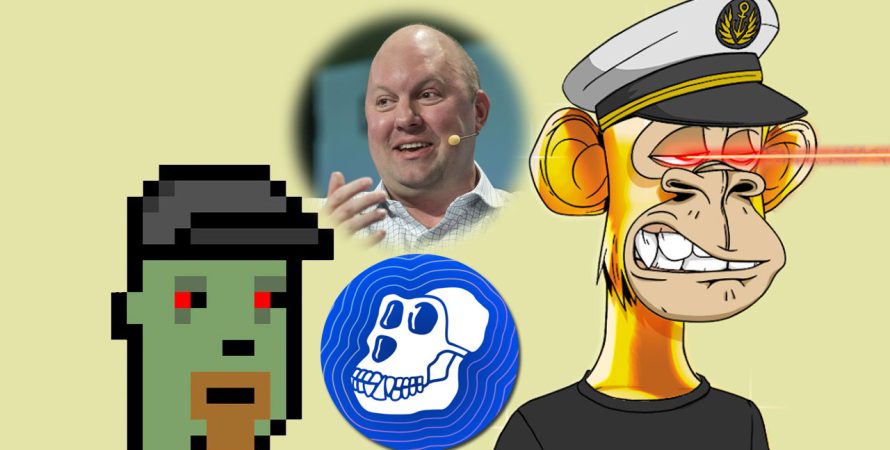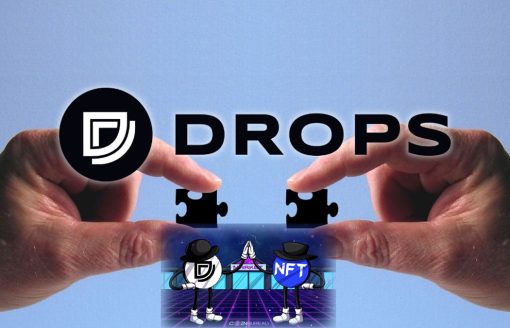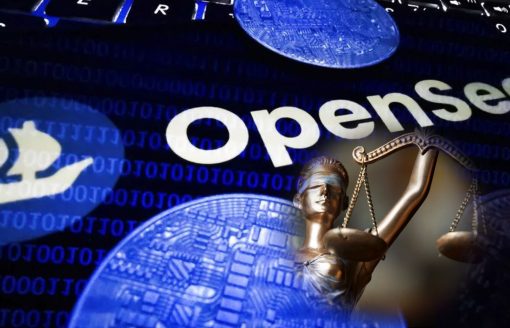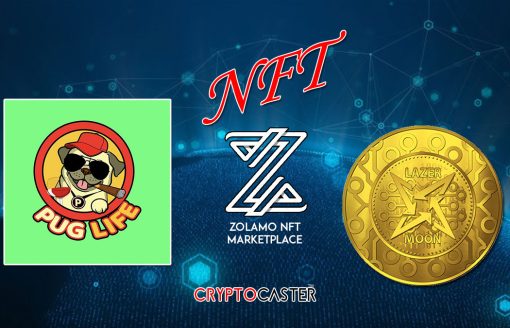While much of the rhetoric around cryptocurrencies has to do with “decentralization” as a guiding ethos, the NFT sector is in fact already extremely centralized.
Specifically, it’s centralized on the sales side. According to data from the blockchain analytics company DappRadar, the vast majority of all non-fungible token sales volume is concentrated on two platforms: OpenSea, the incumbent backed by venture capital firm Andreessen Horowitz, and LooksRare, a scrappy outsider that emerged a few months ago. But because the vast majority of sales volume on LooksRare comes from “wash trades” – that is, traders selling themselves their own NFTs in an attempt to take advantage of the platform’s token rewards system – it’s safe to say that what you might call real NFT trades are happening almost entirely on OpenSea.
And although that’s still very much the case, the NFT market has recently begun a kind of second-order centralization in the realm of content.
On Friday evening, Yuga Labs, the company behind the Bored Ape Yacht Club NFT collection, announced it had acquired the “brands, copyright in the art and other IP rights” for two NFT projects from the developer Larva Labs: CryptoPunks, the pixelated mug shots that helped elevate NFTs into the public consciousness last year, and Meebits, their 3D counterparts.
CryptoPunks were the world’s most valuable NFTs for most of 2021, until Bored Apes dethroned them.
On one level, the acquisition makes sense. Larva Labs has always been just two guys, John Watkinson and Matt Hall. They created CryptoPunks back in 2017, essentially as an experiment. As hype built around their project in 2020 and 2021, the duo kept on working their day jobs at the Google Creative Lab in Manhattan, where their co-workers wondered why they weren’t off capitalizing on the crypto gold rush. They kept on experimenting, launching Meebits last May, but they never really decided to make CryptoPunks their full-time focus.
As time went on, this hands-off approach to the CryptoPunks’ intellectual property began to annoy some CryptoPunk investors. Today, mostly thanks to the success of the Bored Ape Yacht Club business model, the expectation for major NFT collections is that they will function like online social clubs, hosting lavish invite-only concerts and in-person meetups, as well as spinoff NFT projects with the potential to spawn their own communities. Bored Ape holders were signing with major record labels and agencies – where were the equivalent perks for CryptoPunks?
Support CryptoCaster with any amount of Bitcoin by copying and pasting our Unstoppable Domain; villagewest.crypto in your sending wallet or crypto coin exchange.
Your contribution support will help in our growth, coverage, and global presence. CryptoCaster is a decentralized publisher “Covering a Global Evolution Re-defining Mediums Of Exchange”. We will continue to upgrade and create impactful sections to our lineup.
Any amount, as often as you can contribute will be greatly appreciated.
Every contribution, however big or small, is so valuable for our future. Thank you for your consideration and support!
Member of Global Meta Media Consortium℠ – www.g2mc.world
The implication was that CryptoPunks didn’t need that social apparatus. For the Bored Ape Yacht Club, the “community” element has always been a key part of the value proposition – you’re supposed to wear those hoodies, attend those parties. CryptoPunks were initially conceived as pure collectibles; organic speculation, rather than a coordinated marketing campaign, was what made the price go up.
Watkinson and Hall managed to capture lighting in a bottle. Meanwhile, Yuga Labs has reportedly been in talks with Andreessen Horowitz about funding that would value it at $5 billion. The undisclosed sum collected by Larva Labs may have been too good to resist.
The result is that the two most valuable NFT collections are now owned by a single company we know relatively little about. We only just learned the names of its executive leadership last month, in a report from BuzzFeed News (Yuga Labs’ two core founders had previously been pseudonymous, and put up a fight after what they saw as a “dangerous” act of journalism on the part of BuzzFeed).
Larva Labs remains an independent company and retains the rights to its other major NFT project, Autoglyphs. And Yuga Labs has said it doesn’t have any immediate plans to replicate the Bored Apes business model with CryptoPunks, which a press release characterized as a “historic collection.”
Instead, Yuga Labs plans to add “utility” to the collection. “Utility” is an increasingly nebulous buzzword in the NFT sector, and tends to refer to perks for investors down the line. If your NFT unlocks access to a private Discord channel, or to a pre-approved green list for another NFT mint, or a special 3D item on a metaverse platform – broadly speaking, that’s “utility.” (Utility also has the potential to bring certain tokens under scrutiny from the SEC, since it can make NFTs look a lot like investment contracts.) Read More at CoinDesk ![]()
Please Read Essential Disclaimer Information Here.
© 2024 Crypto Caster provides information. CryptoCaster.world does not provide investment advice. Do your research before taking a market position on the purchase of cryptocurrency and other asset classes. Past performance of any asset is not indicative of future results. All rights reserved.
Contribute to CryptoCaster℠ Via Metamask or favorite wallet. Send Coin/Token to Addresses Provided Below.
Thank you!
BTC – bc1qgdnd752esyl4jv6nhz3ypuzwa6wav9wuzaeg9g
ETH – 0x7D8D76E60bFF59c5295Aa1b39D651f6735D6413D
MATIC – 0x7D8D76E60bFF59c5295Aa1b39D651f6735D6413D
LITECOIN – ltc1qxsgp5fykl0007hnwgl93zr9vngwd2jxwlddvqt






